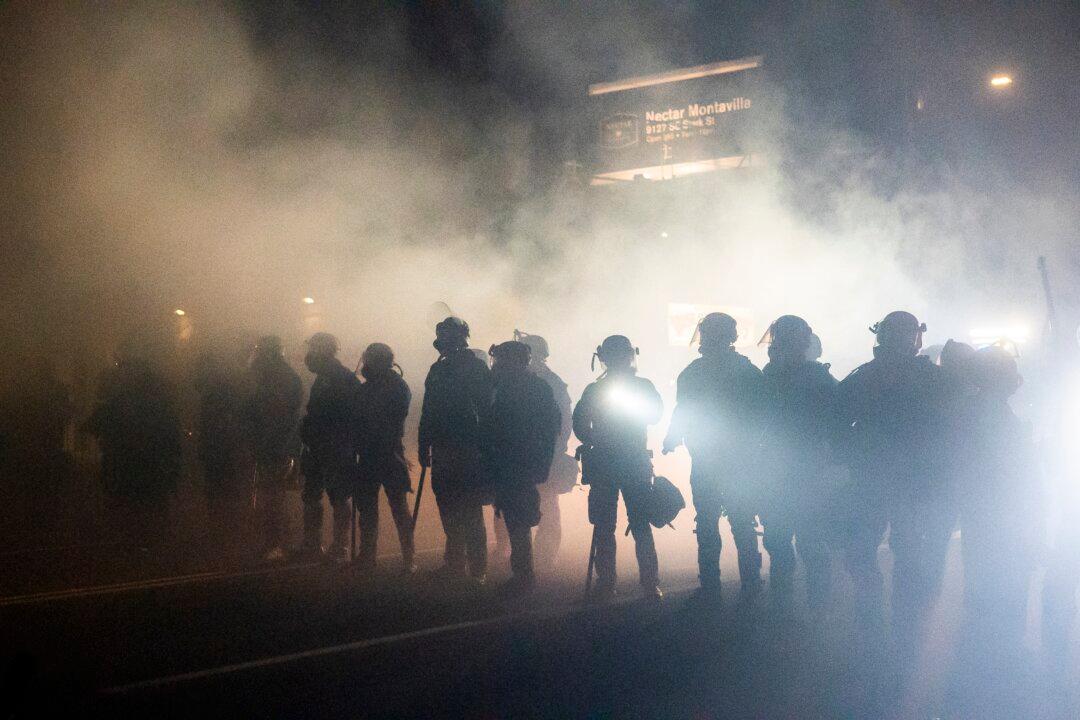A federal judge this week ordered the Portland police department to stop using certain crowd control munitions as he suspended an officer accused of firing non-lethal rounds at demonstrators during a riot in June 2020.
Officer Brent Taylor must be removed from all crowd control events pending an internal investigation, U.S. District Court Chief Judge Marco Hernandez wrote in a 7-page ruling in Don’t Shoot Portland et. al v. the city of Portland the Multnomah County.





